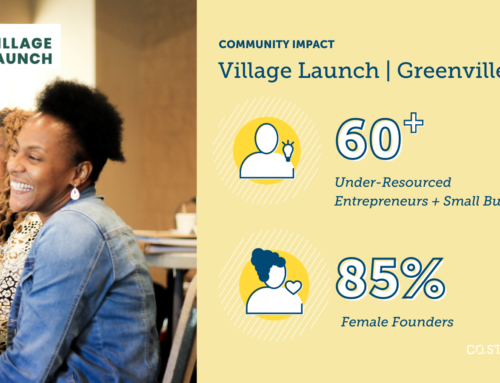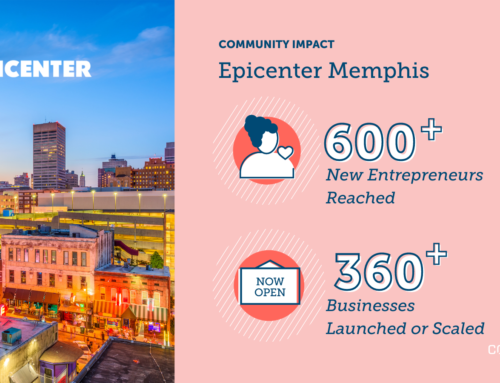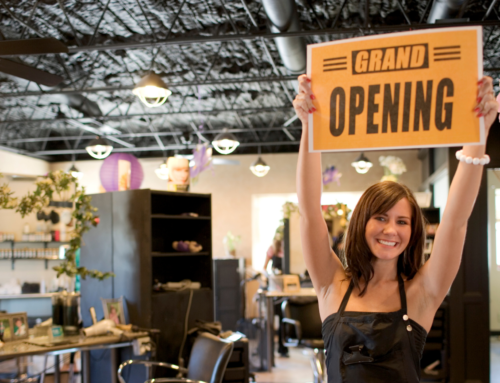The near mythical narrative surrounding a presidential administration’s first one hundred days began with Franklin Delano Roosevelt. In fact, FDR brought the term “first 100 days” into the public’s consciousness during a radio address on July 24, 1933. Regardless of how anyone views his politics, FDR began his first presidential term with an impactful series of laws and regulations that saved the nation’s banks and created the Federal Deposit Insurance Corporation. During their first one hundred days the Roosevelt administration spent half a billion dollars funding soup kitchens and other forms of immediate relief and set the standard for immediate presidential responsiveness when faced with a crisis.
Thankfully, for your own sanity, you don’t have to shoulder that much responsibility, even if it might feel that way right now.
As we face the long road of recovery from the crisis of today, every economic developer and entrepreneurial ecosystem developer faces a choice:
When the elections are over, what will your next 100 days look like?
Communities across America face an economic crisis not seen since FDR’s first one hundred days. Businesses are suffering, unemployment in many areas is at least double what it was this time last year, and—perhaps worst of all—there is an unfortunate deficit of hope and an abundance of fear and uncertainty stifling creativity, innovation, and entrepreneurship.
We can change that.
You can change that.
Every economic developer and ecosystem builder can help lead their community to a brighter tomorrow.
Every city, region, and state can begin the shift from the current economy no one wants to the Next Economy we all need.
But first, you need a plan.
One hundred days will pass between November 4, 2020 and February 11, 2021.
What will you accomplish in that time period? Will you wait to see how a potential change in presidential administrations impacts your community before taking action? Will you sit back while all the #2020iswhack hashtags become posts about how 2021 is already the worst year on record? Will you hope that something—anything—happens in your community that will put your local economy back on track? Will you get comfortable with the phrase, “I would, but…”.
As we face the long road of recovery from the crisis of today, every economic developer and entrepreneurial ecosystem developer faces a choice…
If you believe that change is needed to make your community—and the world— better, “I would, but…” is one of the single most self-defeating statements you can imagine saying. Instead of “I would, but…” economic developers and ecosystem builders who want to be genuine leaders in their community need to say the following:
“I will. Here is our plan.”
That plan should include a strategy to help entrepreneurs be better equipped to take risks, start businesses, create jobs, and begin building the Next Economy. In a crisis, the best solutions—and sometimes the only solutions—start small. They start with something local.
If you were standing in a deforested patch of land, the best way to repopulate that portion of the earth with healthy trees is to reach down, plant a seed, and start watering it.
The same is true with your community.
Too many cities, towns, and regions across the country are standing on economically deforested land.
Unfortunately, that was true before the pandemic. A pandemic didn’t decimate Wheeling, West Virginia—and the economic developers and ecosystem builders in Wheeling didn’t say, “I would, but…”.
They didn’t wait for the federal government to come up with a plan.
In a crisis, the best solutions—and sometimes the only solutions—start small. They start with something local.
Instead, they crafted a strategy that included CO.STARTERS training for aspiring entrepreneurs in their community. The result is a reinvigorated Main Street and a local economy experiencing hope for the first time in decades.
On November 4-6 CO.STARTERS will host “RESTART 2020,” a three-day virtual event for economic developers and ecosystem builders focused on how they can support entrepreneurs in restoring local economies and communities. Our event will help you craft your one hundred day plan that will reinvigorate and inspire your stakeholders.
Your community is facing an economic crisis.
As a leader, people look to you for answers.
They look to you for hope.
They look to you for a plan.
Register for RESTART 2020, and on November 4th you can begin to craft what the next one hundred days can look like for the recovery of your community.
Make a plan to restore your community.
Join an upcoming free webinar for development leaders to learn how entrepreneurship is changing communities and economies for the better.



